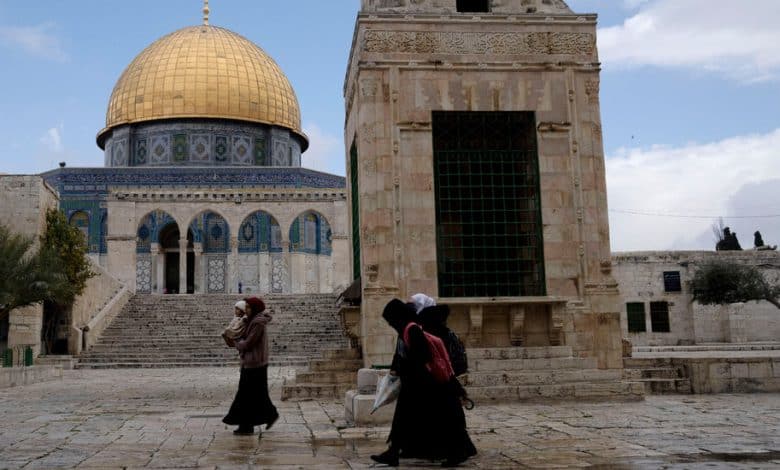Israel May Put New Restrictions on Visiting Aqsa Mosque as Ramadan Nears

The Israeli government was locked in debate on Monday on whether to increase restrictions on Muslims’ access to an important mosque compound in Jerusalem during the holy month of Ramadan, leading to predictions of unrest if the limits are enforced.
The office of Prime Minister Benjamin Netanyahu said in a statement that a decision had already been reached, without disclosing what it was. But two officials briefed on the deliberations, who spoke on the condition of anonymity in order to discuss a sensitive matter, said a final decision would be made only after the government received recommendations from the security services in the coming days.
On Sunday, Israeli cabinet ministers debated whether to bar some members of Israel’s Arab minority from attending prayers at the Aqsa Mosque compound, a site which is sacred to Muslims and Jews alike, during Ramadan, according to the two officials.
Israel has long limited access to Al Aqsa for Palestinians from the Israeli-occupied West Bank, and since the start of the war in Gaza, it has imposed extra restrictions on Arab citizens and residents of Israel. Some had hoped those limits would be largely lifted for Ramadan, which is expected to begin around March 10 — but the talk now is of increasing them, instead.
Dan Harel, a former deputy chief of staff in the Israeli military, said in a radio interview that such a move would be “unnecessary, foolish and senseless” and might “ignite the entire Muslim world.” One Arab Israeli lawmaker, Waleed Alhwashla, said on social media that it would be “liable to pour unnecessary oil on the fire of violence.”
In Muslim tradition, it is from the site of Al Aqsa compound that the Prophet Muhammad ascended to heaven, and tens of thousands of Muslims visit the mosque every day during Ramadan. For Jews, it is revered as the Temple Mount because it was the site of two Jewish temples in antiquity that remain central to Jewish identity.
